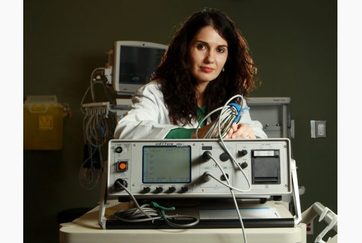
However, the use of ECT greatly declined in the 60s with the introduction of new psychiatric medications, and also because of the stigma associated with the treatment. While the 70s onward has seen a renewed interest and use of ECT, many still hold concerns about possible adverse effects, such as memory loss, though researchers and experts say when conducted properly, ECT is effective and extremely safe and the risks are similar to those of being put under general anesthesia.
Furthermore, ECT has also been the source of controversy such as when it was used by some practitioners for non-medical purposes such as to cure homosexuality, and as a remedy for or to correct truancy. Fortunately nowadays, ECT is better mandated and is indicated mainly for patients who have severe depression and for those who are not responding to medications. ECT has also been found to be useful in those with schizophrenia experiencing a psychotic episode (especially if they exhibit catatonia), for severe mania or bipolar disorder, and occasionally in patients with dementia who exhibit intense agitation and aggression (though evidence and research on this group is quite limited).
Even despite the increased research and evidence on ECT and the improved and safer use of the practice, ECT in Canada still has not been formally standardized. This essentially means that there are no formal training programs for psychiatrists or anesthesiologists (who are also needed now for ECT procedures), and there are no official guidelines that regulate the use of ECT or the specific procedural aspects of the therapy. Therefore, ECT treatments can vary greatly not only by province or region, but also by each practitioner, which is why many are still apprehensive about it.
To get a flavour of ECT Therapy in Canada, as well as how it has affected those with psychiatric diagnoses, check out the TED talk and the news articles below:
- "Electroconvulsive Therapy Use in Canada Mapped Out" (CMA)
- "Electroshock Therapy More Prevalent in Ontario, But Guidelines Are Minimal" by Jennifer Wells and Diana Zlomislic (Toronto Star)
- "Electroconvulsive Therapy is a Life-Saving Medical Treatment for Depression" by Daniel M. Blumberger and Zafiris J. Daskalakis (Toronto Star)
- "Electroconvulsive Therapy: Guidelines for Health Authorities in British Columbia" (BC Ministry of Health Services)
- "Shock Therapy Can 'Erase' Bad Memories, Brain Researchers Show" by Helen Shen (Huffington Post via Nature)
 RSS Feed
RSS Feed
